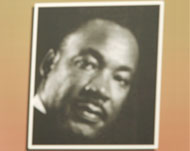US apologises over lynchings history
The US Senate is making amends for failing to stand against the lynching of thousands of black people, a practice that continued well into the 20th century.

Nearly 200 descendants of lynching victims, and a 91-year-old man thought to be the only living survivor of a lynching attempt, were on hand on Monday to receive a Senate apology for blocking anti-lynching legislation at a time when mob violence against blacks was commonplace.
“I came here to bear witness on behalf of my cousin Jimmy,” said Janet Langhart Cohen, wife of former defence secretary William Cohen and a member of the group that has pushed for the apology.
Her third cousin, 17-year-old Jimmy Gillenwaters, was killed by a lynch mob near Bowling Green, Kentucky, in 1912.
Mob killings
He was one of 4743 people killed by mob violence between 1882 and 1968, according to Tuskegee University records. Of those, nearly three-fourths – 3446 – were blacks.
 |
|
Blacks faced discrimination in the |
Lynchings reached a peak of 230 in 1892, but they were prevalent well into the 1930s. Twenty lynchings were reported in 1935.
During that time, nearly 200 anti-lynching bills were introduced in Congress, and three passed the House. Seven presidents between 1890 and 1952 petitioned Congress to pass a federal law.
But the Senate, with Southern conservatives wielding their filibuster powers, refused to act. With the enactment of civil rights laws in the 1960s and changes in national attitudes, the issue faded away.
Lynching is variously defined as a violent act, usually racial in nature, that denies a person due process of law and is carried out with the complicity of the local society.
The sponsors of the resolution, Senators Mary Landrieu and George Allen, said they were motivated in part by a recent book, Without Sanctuary, Lynching Photography in America, in which author James Allen collected lynch pictures, mostly taken by those participating in the killings.
“More than a half-century ago, mere feet from where we sit … the Senate failed you and your ancestors and our nation,” Landrieu told descendants at a lunch in the Capitol building.
Sole survivor
Among those present was James Cameron, who as a shoeshine boy in Marion, Indiana in 1930 was dragged from a cell and had a rope placed around his neck. Two of his friends, also accused of the murder of a white man and the rape of a white woman, were hanged. Cameron, then 16, was spared when a man in the crowd proclaimed his innocence.
 |
|
Secretary of State Condoleezza |
“I was saved by a miracle,” Cameron said at a news conference. “They were going to lynch me between my two buddies,” he said. Thousands of people were “hollering for my blood, when a voice said, ‘take this boy back’.”
The nonbinding resolution, which the Senate passed by voice vote on Monday evening, apologises to the victims for the Senate’s failure to act and “expresses the deepest sympathies and most solemn regrets of the Senate to the descendants of victims of lynching, the ancestors of whom were deprived of life, human dignity and the constitutional protections accorded to all citizens of the United States”.
US Secretary of State Condoleezza Rice, who witnessed racial tensions as a child in Alabama, called the apology “a remarkable and wonderful thing”.